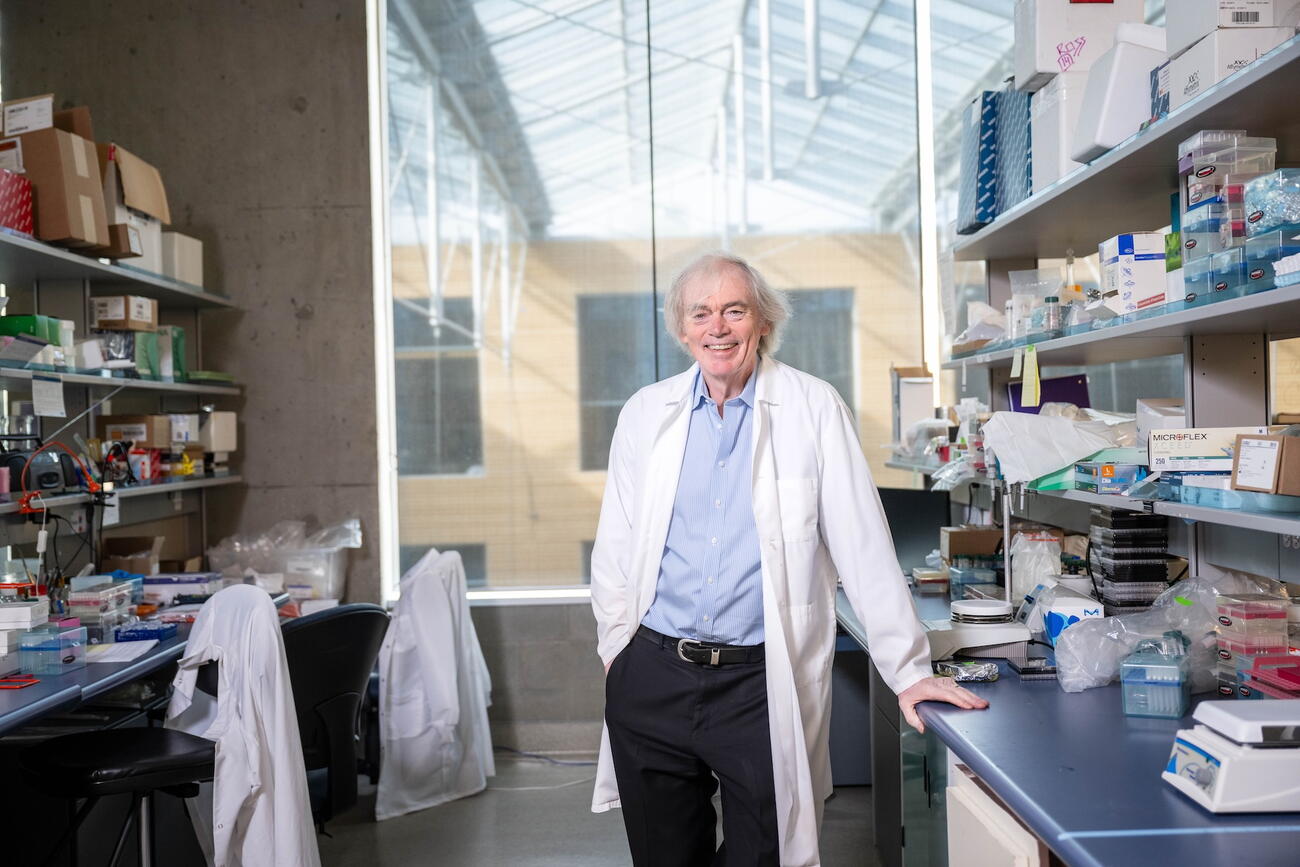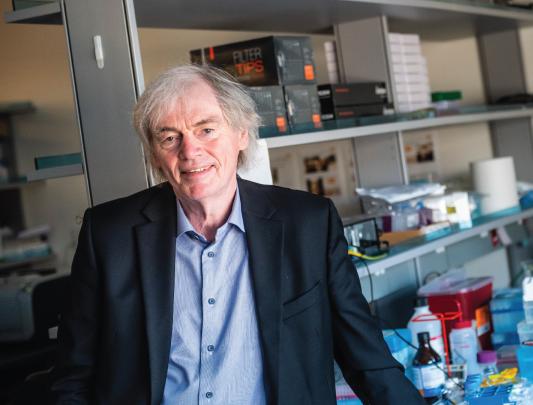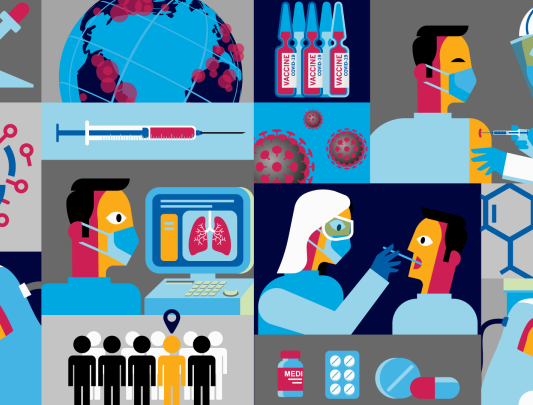It all started at UBC: How a professor ignited BC’s biotech boom
Pushing the economy forward: Together with public and private sector partners, UBC and its researchers are fueling job creation and solving real-world challenges.
When Dr. Pieter Cullis (BSc’67, MSc’70, PhD’72) arrived at UBC as an undergraduate physics student in 1964, he had no idea he would one day help develop a scientific breakthrough that would protect billions of people worldwide—or that his work would help fuel British Columbia’s booming biotech sector.
“I’ve always believed that if you want to solve big problems, you need to keep good people working together long enough to make real progress,” says Cullis. “That’s what drove everything.”
Today, Cullis is known globally for his innovative work on lipid nanoparticles, the drug delivery system that made mRNA vaccines—like the Pfizer-BioNTech and Moderna COVID-19 vaccines—possible. (Among the numerous accolades he has garnered, he received the 2022 Alumni Award of Distinction at the alumni UBC Achievement Awards.) He is part of a generation of UBC researchers—innovators like Dr. Michael Smith, Dr. Julia Levy, and Dr. Carl Hansen, among many others—who helped create BC’s thriving biotech sector that continues to grow today.
Cullis’ entrepreneurial drive helped launch more than a dozen UBC spin-off companies and inspired hundreds of students to pursue careers in biotech. He and others set in motion a life sciences ecosystem that now includes more than 2,000 companies across BC, employing more than 20,000 people.
That’s just part of UBC’s broader economic impact. To date, UBC discoveries have been the basis of more than 270 spin-off companies and at the heart of products, services, and treatments that have generated an estimated $13 billion in sales across multiple sectors.
With $936 million in research funding in 2024/25 and an operating budget of $2.7 billion, UBC is Western Canada’s most research-intensive university. Nearly 90 per cent of all industry-funded research in BC’s post-secondary system happens at UBC. Each year, UBC undertakes more than $70 million in industry-sponsored research across more than 1,000 projects.
“UBC’s economic impact is all around us—and it happens through our people,” says UBC President and Vice-Chancellor, Dr. Benoit-Antoine Bacon. “Researchers like Dr. Pieter Cullis laid the groundwork for BC’s innovation economy that continues to grow today. From students and faculty to staff and alumni, the ideas that emerge here power jobs, companies, and communities across BC. It’s not an exaggeration to say that UBC is one of the province’s most powerful economic engines.”
And it started with researchers like Cullis, who helped set the ecosystem in motion. This is his story.
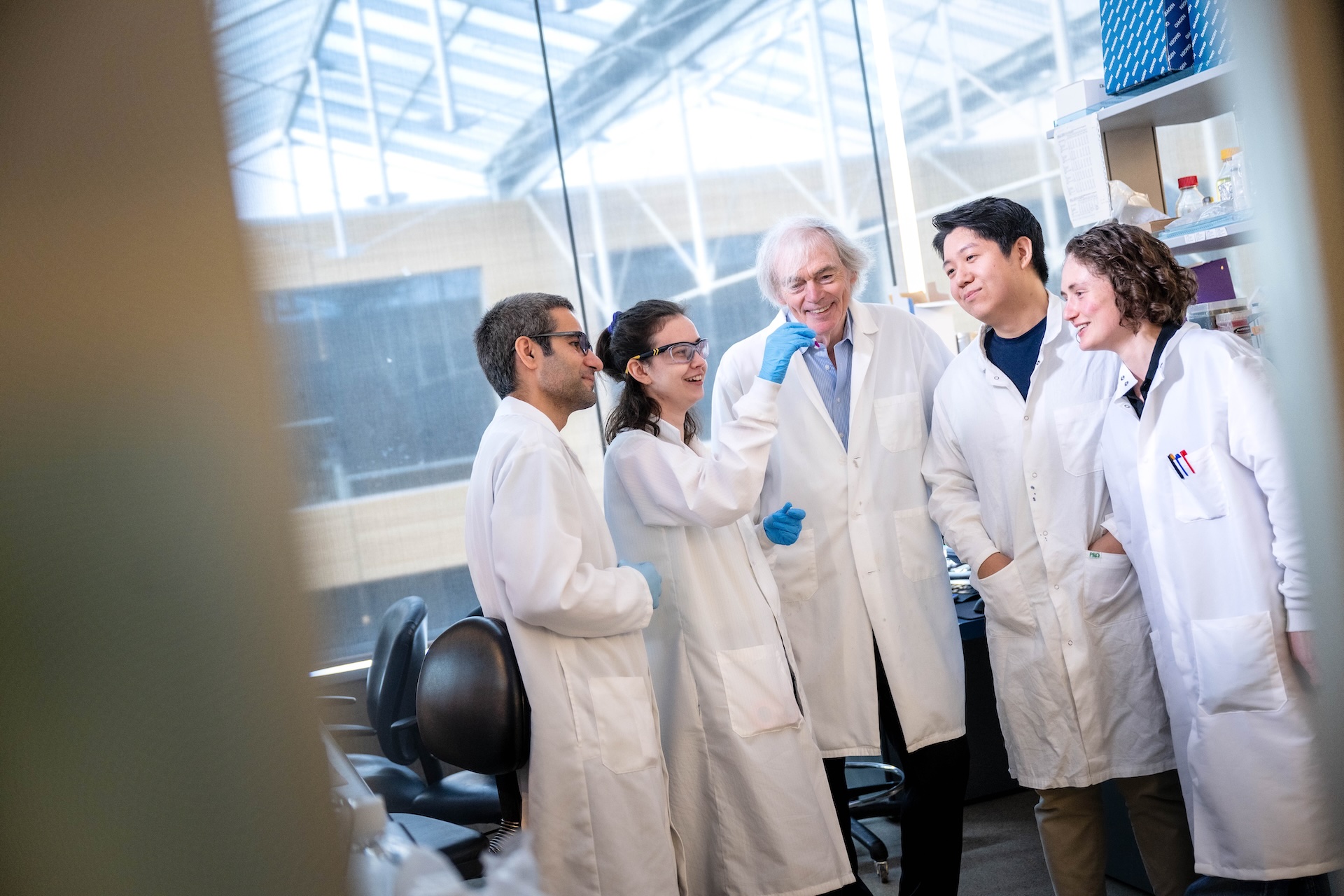
From a garage venture to global impact
Born in England and raised in Vancouver, Cullis earned all three of his degrees at UBC, completing his PhD in physics in 1972. After a post-doctoral fellowship in biochemistry at Oxford University, Cullis returned to UBC in 1978 to join the biochemistry department—and quickly hit a wall.
“There were no jobs for my students in Canada,” Cullis says. “If I wanted to keep my team in Vancouver, I knew I had to build something for them to be part of.”
That led to his first UBC spinoff created in the early 1980s called Lipex Biomembranes. The Lipex team invented a device to rapidly and reliably produce lipid nanoparticles. Known as “The Extruder,” the tool became highly sought-after by researchers around the world.
Operating out of a garage, Lipex built and shipped thousands of the devices internationally, which helped fund the lab’s work and kept the core team together—both scientifically and socially. The company’s unofficial mission statement? “Free beer every Friday and parties whenever possible,” Cullis recalls with a laugh.
Over the decades, Cullis has co-founded more than a dozen UBC spinoff companies and non-profits and helped grow a globally recognized biotech industry that now employs thousands across British Columbia.
UBC’s support with the business side—from filing patents to completing licensing agreements—as well as its flexibility, was essential. “In the 1990s, I asked to go half-time at the university so I could focus on building these ventures, and they said yes,” Cullis says. “That made all the difference.”
Creating jobs, companies, and life-saving medicines
Companies such as Acuitas Therapeutics and Precision NanoSystems—both co-founded by Cullis—played a vital role in advancing gene therapies and pandemic preparedness, while also fueling the local economy by creating high-quality jobs. Cullis estimates that the companies he’s co-founded employ about 500 people—many of them former students who once trained in his lab.
They’re part of a much larger ecosystem. Today, BC’s life sciences sector includes more than 2,000 companies, with several UBC spin-offs—like AbCellera and Aspect Biosystems—gaining global recognition for their breakthroughs in antibody discovery, biologics, and tissue engineering. Other local companies like STEMCELL Technologies and Zymeworks maintain strong research ties with the university and play a key role in training and employing UBC graduates.
“UBC is truly a launchpad,” says Dr. Gail Murphy, UBC’s Vice-President, Research and Innovation. “It’s where ideas turn into discoveries, and discoveries turn into impact. Our innovation ecosystem doesn’t just support research—it creates real economic and social value for the province.”
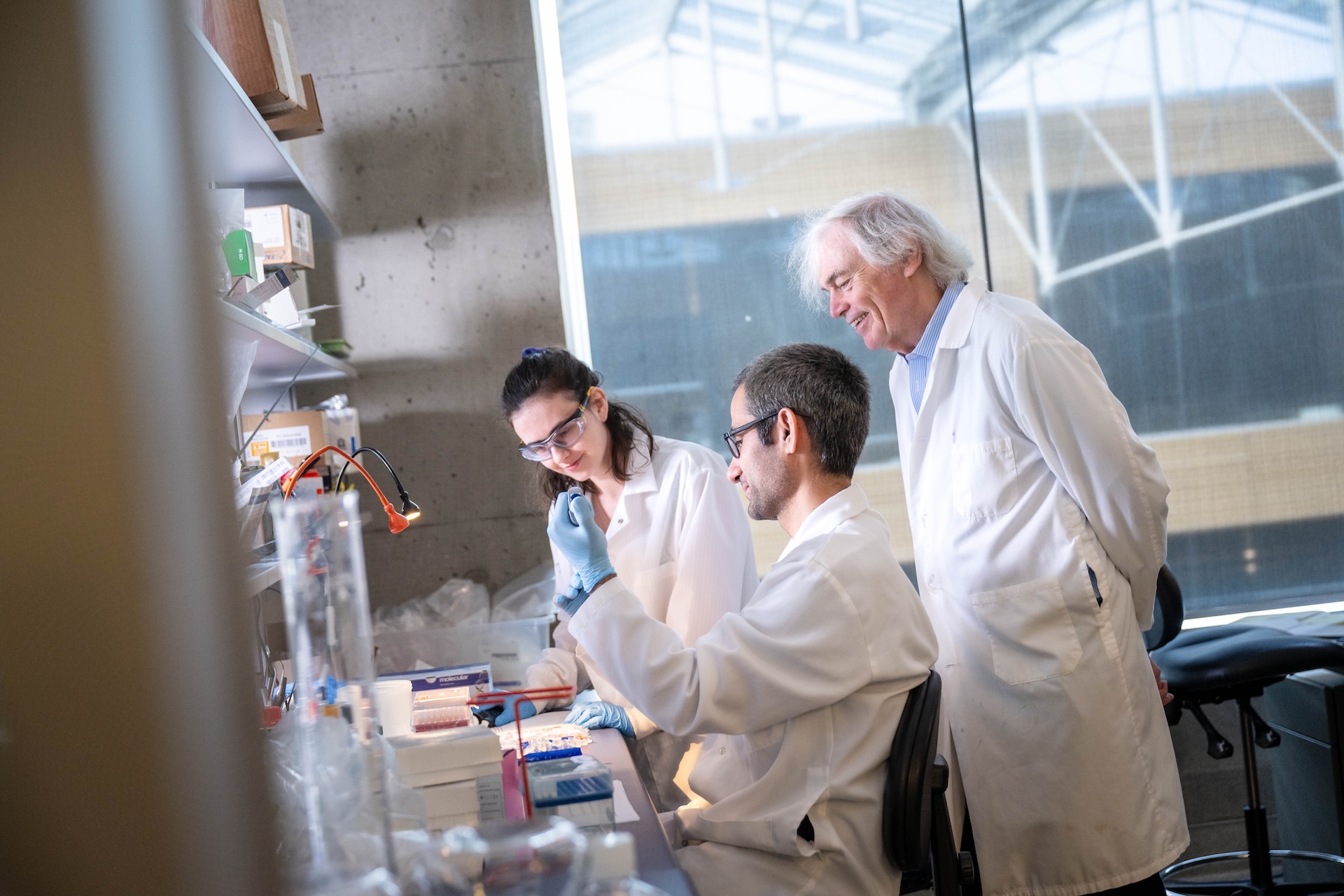
A century of impact—and still growing
As UBC marks 100 years of classes at the Vancouver Point Grey campus this fall, its economic impact continues to grow. Each year, about 15,000 UBC students graduate and many of them funnel directly into the regional workforce in communities across the province.
Of the more than 400,000 UBC alumni globally, 250,000 live and work in BC alone, contributing their skills and creativity to the economy, public service, health care, and beyond.
For Cullis, the most meaningful part isn’t just the discoveries or companies—it’s the people. Many of his former students now lead or work at some of BC’s most innovative life sciences ventures.
“We’ve built something remarkable here, and what excites me most is knowing the next big breakthrough could come from someone just starting out at UBC today,” he says.
His advice for future innovators? “Don’t wait. Take the leap. Start something—even if it’s small, and you don’t feel quite ready. That’s how all of this began.”
























